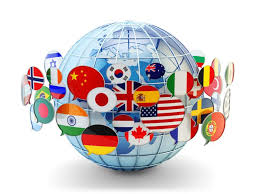In today’s global world, Russian translations are very important. Consequently, they help build international connections and strengthen business ties. Russian is one of the most spoken languages worldwide. Moreover, it’s crucial in trade, science, technology, and culture. Translating into Russian needs knowledge of the language, culture, and history. Therefore, let’s look at the key parts of Russian translation, its challenges, and some helpful tips.

Language characteristics
Russian is a Slavic language and is widely used. Additionally, it uses the Cyrillic alphabet and has complex grammar. These factors can make translation tricky. Furthermore, Russian also has flexible word order. This means words can be arranged in many ways in a sentence. In fact, the language has a rich vocabulary with many synonyms. As a result, translators must know about language and culture differences. Russian also has many idioms and sayings that are hard to translate. Moreover, it has clear differences between formal and informal language.
Russian is popular, so there’s high demand for translations. Consequently, this is especially true in areas like:
- Trade and business: For translating agreements, legal papers, and websites.
- Literature and media: To spread Russian culture through books, articles, and films.
- Science and technology: For translating research papers and technical documents.
- Tourism: To create guides and info booklets about Russian culture and history.
- Medical field: For translating medical records and research papers.
- Marketing: To translate ads, websites, and marketing campaigns.
To ensure high-quality translations, it is advisable to use the services of a professional translation agency. In fact, they check translations carefully to avoid mistakes. Moreover, professional translators use special computer tools. These tools help keep terms consistent, which is important for technical texts. Additionally, they use term databases and specialized dictionaries to streamline the translation process.
Russian translators should always work on improving their skills. For instance, reading Russian books, news, and online content helps keep their language skills sharp. Furthermore, they should also learn more about Russian culture, history, and society. This helps them understand the context of what they’re translating. Consequently, staying updated is crucial for accurate translations.
Sometimes, Russian translations can bring up ethical and political issues. For example, translators must stay neutral when dealing with political topics. Moreover, there may be pressure to adjust translations to fit certain views. Additionally, translating texts on controversial history or politics requires particular caution and sensitivity.
Looking ahead, the future of Russian translation appears promising but also full of challenges. Firstly, new technology like AI and machine translation will change how translators work. Secondly, globalization may boost the demand for Russian translations. Furthermore, changes in international relations could affect translation needs. Lastly, specialization among translators in fields like tech or medicine will become more important.
Conclusion
In conclusion, Russian translations are key for global communication. Consequently, they’re becoming more important as the world becomes more connected. Good translations are vital for business, culture, science, and government. Therefore, translators must keep learning and adapting to meet growing needs. Ultimately, working in Russian translation can be very rewarding for those who take on the challenge.



